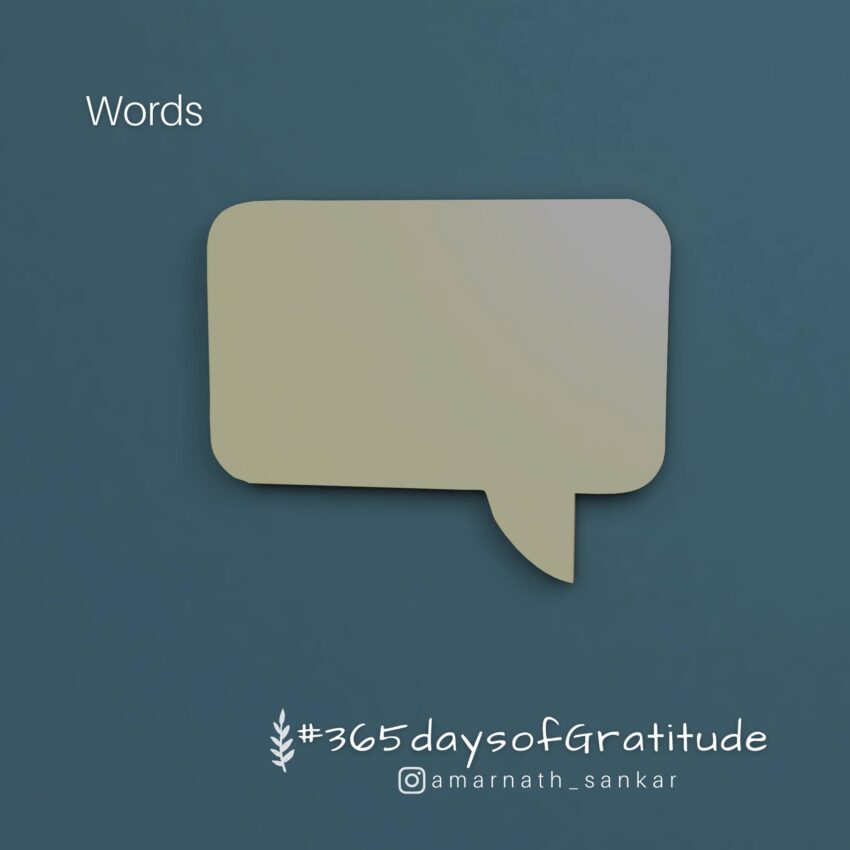I understand, conceive and store words by connecting them with emotions, feelings and experiences. When I was very young, one of my aunts asked my cousin and me, “What is the meaning of taste?” I must have been 4 or 5, he was 7 or 8. She asked me first and I said, “Madhuram” (meaning sweet), and when she asked my cousin he told her that the meaning of taste is “Rasam,” which literally means taste. I was unable to convey the essential idea of taste because I found taste in sweets and my brain equated taste with sweetness.
Organically or not, I became very particular about using words in conversations, in whichever language it might be. Before using them, I always try to weigh the potential of words and measure them even in simple conversations, or when I am communicating an idea whether spoken or written.
I try to weigh the power of words because masters say, “Words are not just words, words are very powerful.” Even uttering a word is an act of creation, so it’s a very powerful thing, and masters say we have to be very careful while using words, they have the power to craft and decide our own destiny. In the Eastern tradition, especially in India, we call words arranged in particular rhythms and structures a “Mantra” – they are compositions of words manifested for a definite purpose.
We are fortunate to have millions of words in the world which help us express ideas, store memories and create a better place to live and today I am gratefully remembering one of the greatest developments in human history – words in languages.
#day86ofGratitude #originalcontent #bilingual #365daysofGratitude #synchronicity #paradigmshift #gratitude #awakening #meditation #awareness #storytelling #productivity #performance #entrepreneurship #startups #transformation #personalgrowth #littlebigthings #life #universe #motivation #inspiration #languages #words #mantra
